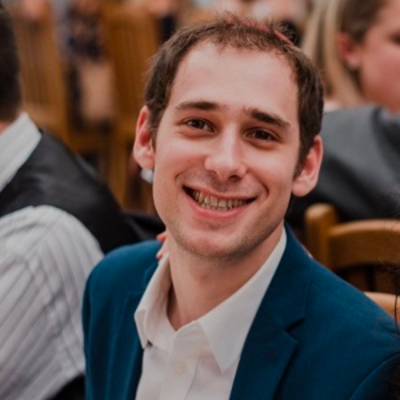In Parshat VaEt’chanan, after Moses passionately encourages the Israelites to follow God’s ways, we are reminded of the Cities of Refuge:
Thus (Hebrew: אָ֣ז), Moses set aside the three cities on the east side of the Jordan to which a person who has killed someone could escape, somebody who accidentally murdered another without having been an enemy in the past; that person could flee to one of these cities and live… And this is the Teaching (Hebrew: הַתּוֹרָה) that Moses set before the Israelites. (Deuteronomy 4:41-44)
The Cities of Refuge are a safe haven for anybody who accidentally killed another. The person fleeing is kept out of harm’s way, lest somebody attempt to kill them in revenge. These cities honor the human being, a creature of God, who has accidentally sinned. In their simplest form, the Cities of Refuge are life-giving.
Find more commentaries on Parshat VaEt’chanan.
There is a long-standing tradition of comparing the Cities of Refuge with Torah. Just as these Cities of Refuge are a life-giving force, so too is Torah. Rabbeinu Baḥya (13th-14th century Spain) offers this teaching:
Let us expound on the phrase, “And this is the Teaching (הַתּוֹרָה)” (Deuteronomy 4:44): Just as the Cities of Refuge save lives, so too does Torah…
Israel asked Moses: “If the Cities of Refuge cease to exist, where will we flee?”
Moses answered: “To Torah. As it says, ‘And this is the Teaching (הַתּוֹרָה)’ and [about Torah] it is written, ‘She is a Tree of Life for all of those who cling to her, and those who support her are fulfilled.’” (Proverbs 3:18)
Both Torah and the Cities of Refuge are places to which we can turn when acknowledging the brokenness within and around us. This expansiveness of Torah, which includes the entirety of Jewish tradition, has given me inspiration and sustenance over the years. Engaging in words of Torah provides me with comfort when life’s most difficult moments seem too cruel to bear. I am grateful for Torah’s well of life.
According to one midrash, Moses was overwhelmed with joy when he announced the Cities of Refuge. We learn the following from Midrash Tanḥuma Buber (Appendix to VaEt’chanan, 4):
“Thus (אָ֣ז), Moses set aside the three cities” (Deuteronomy 4:41).
What does “Thus” mean?
It is the language of song.
Who is singing?
It is the accidental killer, [who now has a safe haven] and will not be killed.
Or, it is Moses, because he killed the Egyptian taskmaster and fled. Thus, he knows what is in the soul of a killer.
The midrash is playing off of the word “Thus (אָז).” While singing is not explicit in our text, there are other scenes in which the word “Thus (אָז)” is used as a preamble for singing. A classic example is during the “Song of the Sea,” which is sung after leaving Egypt:
Thus (Hebrew: אָז) Moses and the Israelites sang this song to God. (Exodus 15:1)
Our midrash’s author is using this rabbinic-linguistic tradition to create a moment of song when referencing the Cities of Refuge. This changes the tone of our text to reflect a joyous musical celebration for a legal tool that helps save lives.
Find more commentaries on Mass Incarceration.
Even though Moses never benefited from these Cities of Refuge once the Israelites entered the Land of Canaan, he nevertheless understood the importance of their existence. Moses and the Israelites understood that how we treat the most vulnerable in our society, those fleeing from unexpected harm, highlights a culture’s values.
I am inspired by the work of the National Council for Incarcerated and Formerly Incarcerated Women and Girls and Families for Justice as Healing, which is giving life for incarcerated and formerly incarcerated folks everyday. In particular, I find myself thinking of the “Reimagining Communities” initiatives that build systems of justice that promote healing within communities. No matter the circumstances, each imprisoned and formerly imprisoned person deserves a life filled with dignity. These initiatives, such as basic income programs, mutual aid, and clemency advocacy (to name a few), are essential to building a better society. Much like the Cities of Refuge, these programs are helping to create healing, justice, and thriving communities nationwide.
Each of us needs a place to turn to in moments of need that acts as a refuge and life-giving source. This week, I hope you are able to recognize and embrace the sources that nourish you. And, I hope that each of us can help lift up those places in our society that give life for others.
Danny Stein is the Rabbi of The Selma and Lawrence Ruben Base Upper West Side, powered by Moishe House and working alongside his wife Tamara. He received his rabbinic ordination from Hebrew College and is deeply passionate about building a pluralistic Jewish community through Torah, justice and compassion, soulful prayer, and engaging conversation. Danny was a 2022 T’ruah Rabbinic Summer Fellow.

